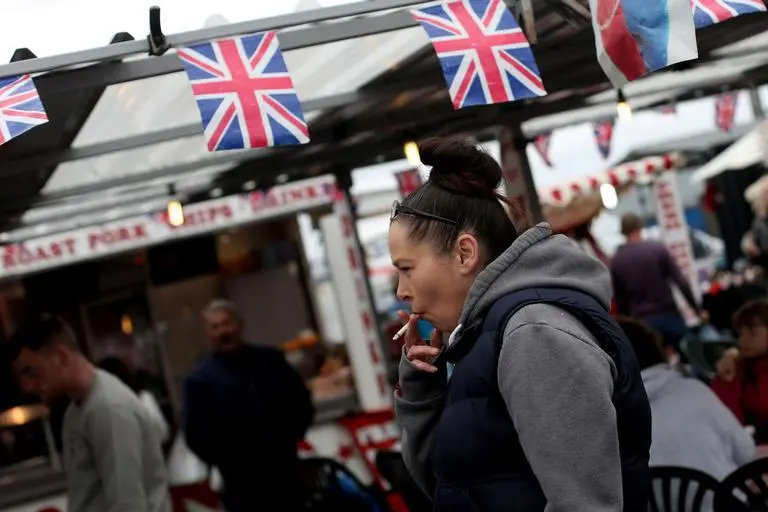PHOTO
No-deal Brexit risks are on the rise again, some investment banks say, though parliament's resolute opposition to Britain crashing out of the EU without a trade deal means that probability is still seen as low.
More than half the banks canvassed by Reuters have upped no-deal Brexit probabilities. Prime Minister Theresa May's failure to find a compromise with the opposition Labour on passing a Brexit deal led to her announcing her resignation and the Eurosceptic Boris Johnson becoming front-runner to replace her.
BNP Paribas for instance doubled its probability of a 'no-deal' to 40%, while JPMorgan raised theirs to 25% from 15%.
Whether these risks rise further depends on the outcome of the race to succeed May, with some analysts seeing no-deal proponents emboldened by the Brexit party's strong showing at last week's EU parliament election.
All the banks assess no-deal Brexit probabilities as less than 50%; most put it in the 10-25% range. Parliament overwhelmingly opposes crashing out of the EU without a divorce deal and could either trigger new elections via a no-confidence vote leading to a deadline extension or it could vote to revoke Brexit, argues James Smith at ING Bank.
Smith assesses no-deal risks at 20%.
What's more, sharp gains by anti-Brexit parties may also imply greater chances of a second referendum -- or no Brexit at all, some argue.
"The Labour frontbench may well decide that advocating a second referendum will play to its electoral advantage," said Goldman Sachs which puts the likelihood of no-Brexit at 40%.
"Alternatively, if a Eurosceptic Prime Minister proves intent on pursuing a no deal Brexit, we think a majority of MPs...may well vote to revoke Article 50 as a last resort."
(Reporting by London markets team; Graphic by Ritvik Carvalho; Compiled by Sujata Rao; Editing by Hugh Lawson and Stephen Powell) ((sujata.rao@thomsonreuters.com;))





















